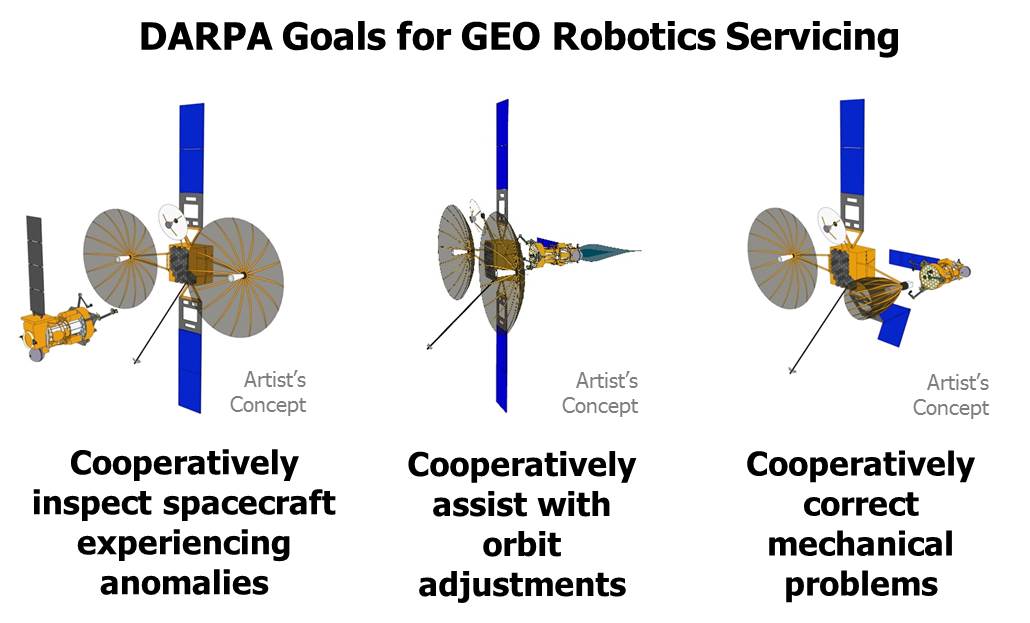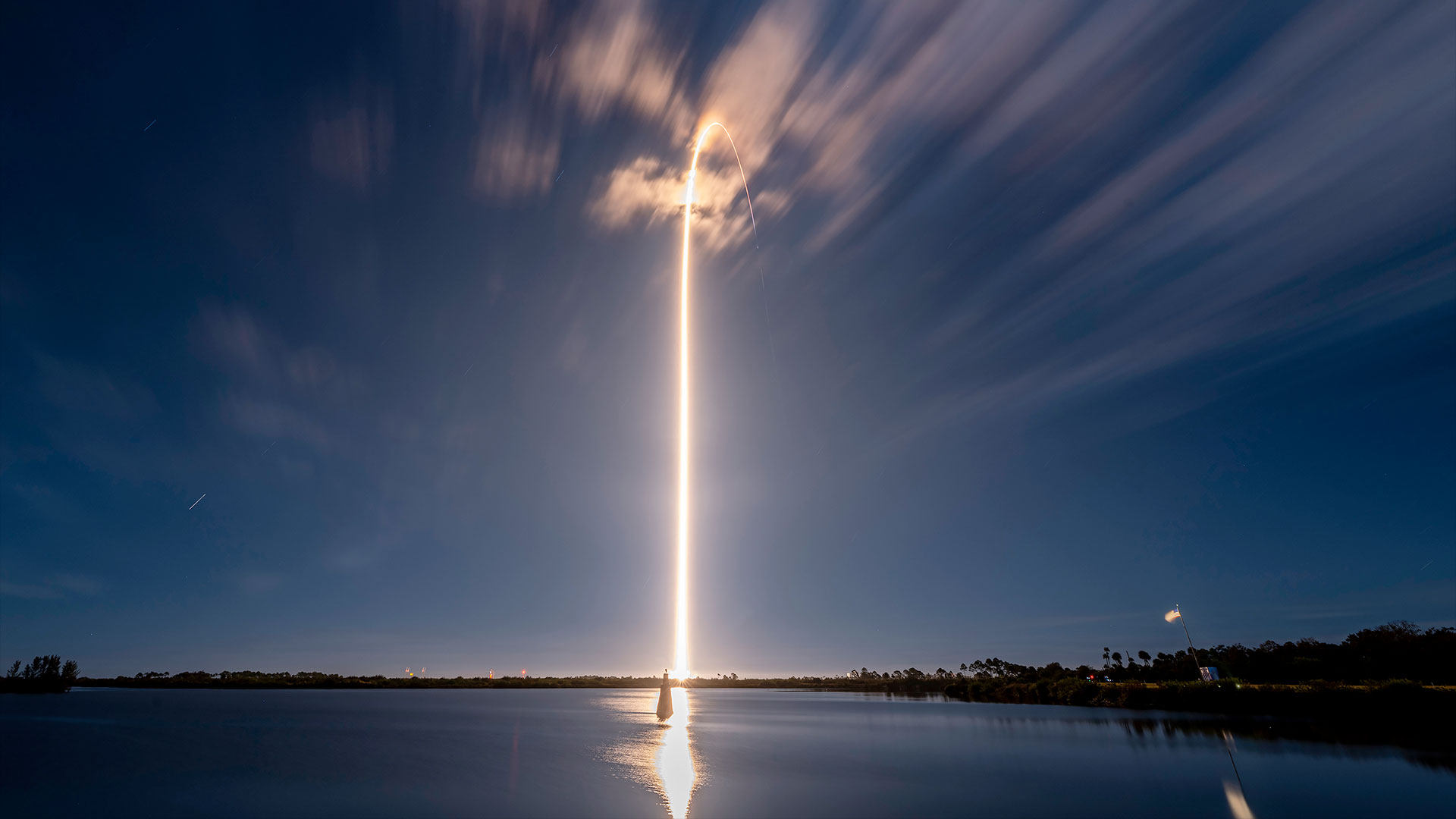DARPA Wants to Test Satellite Repair Droids in Orbit
The United States military's high-technology branch is hoping to test out on-orbit satellite servicing in orbit in the next five years.
Satellites that sit in geostationary orbit, which is about 22,000 miles (36,000 kilometers) above the Earth, are traditionally used for communications and surveillance because the length of the orbit is approximately the same as Earth's day. This allows a satellite to gaze at the same area of Earth around the clock.
This location is too far away for conventional satellite servicing mission concepts, however, and at the end of the satellite's lifespan it needs to be moved away from that orbital slot to make way for new missions. As such, the Defense Advanced Research Projects Agency (DARPA) is seeking some sort of a public-private partnership for satellite servicing.
The partnership would be for both commercial and military owners with satellites in that space, possibly saving money since new satellites wouldn't need to be launched as often.
"The ability to safely and cooperatively interact with satellites in GEO [geostationary orbit] would immediately revolutionize military and commercial space operations alike, lowering satellite
construction and deployment costs and improving satellite lifespan, resilience and reliability," DARPA officials wrote in a statement.
DARPA has put out a request for information looking for "technical, security and business insights" to make this service possible.
The agency is seeking technical information on a possible "robotic servicer" that would make use of previously developed DARPA space robotics.
Breaking space news, the latest updates on rocket launches, skywatching events and more!
Ideally, the robot would be able to fix mechanical problems like antenna issues, or inspect spacecraft that had operational problems, providing more information to controllers on Earth. The servicer might even be able to move satellites into other orbits.
Responses to the request for information are due by Nov. 3. To learn more abotu DARPA's satellite servicing project requirements, read the full request for information.
Follow Elizabeth Howell @howellspace. Follow us @Spacedotcom, Facebook and Google+. Original article on Space.com.

Elizabeth Howell (she/her), Ph.D., was a staff writer in the spaceflight channel between 2022 and 2024 specializing in Canadian space news. She was contributing writer for Space.com for 10 years from 2012 to 2024. Elizabeth's reporting includes multiple exclusives with the White House, leading world coverage about a lost-and-found space tomato on the International Space Station, witnessing five human spaceflight launches on two continents, flying parabolic, working inside a spacesuit, and participating in a simulated Mars mission. Her latest book, "Why Am I Taller?" (ECW Press, 2022) is co-written with astronaut Dave Williams.

